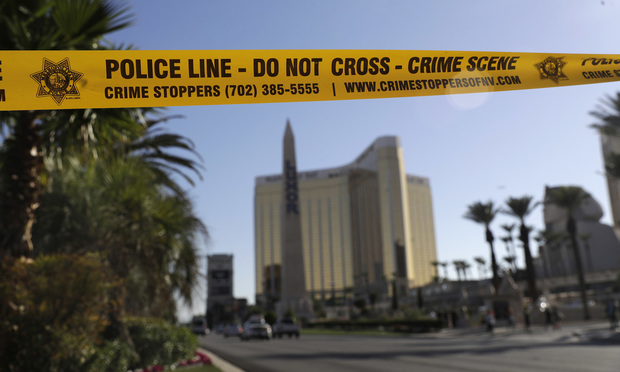In the deadliest shooting in U.S. history, Stephen Paddock on Oct. 1, 2017, killed 58 people and wounded hundreds from his perch within the Mandalay Bay hotel, owned by MGM Resorts International. Following the tragedy, MGM faced lawsuits from hundreds of victims. In an aggressive move, MGM sued the victims and their families, seeking a declaratory judgment that the victims’ potential claims against the casino giant are barred by an obscure federal law. MGM, however, has apparently reconsidered its public litigation strategy and has agreed to suspend the cases in favor of private mediation.
MGM’s pre-emptive defense is based on a never-before litigated federal law—the Support Anti-Terrorism by Fostering Effective Technologies Act of 2002, or SAFETY Act. The act was passed following the Sept. 11, 2001, terrorist attacks, and provides legal protections to companies that develop cutting-edge anti-terrorism technologies—including both physical and cybersecurity technologies—after the companies pass a rigorous certification process administered by the U.S. Department of Homeland Security.
This content has been archived. It is available through our partners, LexisNexis® and Bloomberg Law.
To view this content, please continue to their sites.
Not a Lexis Subscriber?
Subscribe Now
Not a Bloomberg Law Subscriber?
Subscribe Now
LexisNexis® and Bloomberg Law are third party online distributors of the broad collection of current and archived versions of ALM's legal news publications. LexisNexis® and Bloomberg Law customers are able to access and use ALM's content, including content from the National Law Journal, The American Lawyer, Legaltech News, The New York Law Journal, and Corporate Counsel, as well as other sources of legal information.
For questions call 1-877-256-2472 or contact us at [email protected]


 FILE – In this Oct. 4, 2017 file photo, part of Reno Ave. near South Las Vegas Blvd is blocked with police tape in the aftermath of a mass shooting in Las Vegas. Police in Las Vegas promised to release dispatch logs and additional officer reports on Wednesday, May 23, 2018, providing more witness accounts of the chaos, carnage and compassion during the deadliest mass shooting in modern U.S. history. The scheduled release of documents follows a court order in a public records lawsuit by The Associated Press and other media organizations seeking information about the Oct. 1 shooting.
FILE – In this Oct. 4, 2017 file photo, part of Reno Ave. near South Las Vegas Blvd is blocked with police tape in the aftermath of a mass shooting in Las Vegas. Police in Las Vegas promised to release dispatch logs and additional officer reports on Wednesday, May 23, 2018, providing more witness accounts of the chaos, carnage and compassion during the deadliest mass shooting in modern U.S. history. The scheduled release of documents follows a court order in a public records lawsuit by The Associated Press and other media organizations seeking information about the Oct. 1 shooting.


